A moving, harrowing exploration of humanity in the face of absolute evil, “The Tattooist of Auschwitz” is devastating but essential viewing.

Episode 104 — Pictured: (l-r) Harvey Keitel as Lali Sokolov & Melanie Lynskey as Heather Morris (Photo by: Martin Mlaka/Sky UK)
The Tattooist of Auschwitz is the story of Lali and Gita, two young Holocaust survivors who inexplicably found love in the darkest depths of hell and overcame insurmountable odds to build a life together. It’s a story that sounds like fantasy — a talented writer’s desperate attempt to find humanity among the wreckage of unspeakable atrocities.
Yet, it’s a story very much grounded in reality, a life’s worth of memories painstakingly recounted by Slovakian Jew Lali Sokolov to first-time writer Heather Morris.
An adaptation of the worldwide phenomenon and best-selling novel of the same name, The Tattooist of Auschwitz is a six-episode limited series that begins with an elderly Lali (Harvey Keitel) reeling from the loss of his beloved Gita and feeling desperate to share his story before he runs out of time.
He meets Heather (Melanie Lynskey), who volunteers to help craft his memoir, and he begins to weave his impossible tale, told through flashbacks.
We’re then introduced to the young, handsome, well-educated Lali (Jonah Hauer-King) in early 1942. Like most young people from a good home and loving family, he’s full of hope and potential. But a dark cloud hangs overhead.
A series of increasingly restrictive and oppressive laws designed to target Jews and designate them as a lower class of citizens have been passed. His boss is forced to terminate him, and his girlfriend abruptly leaves him.
Then, a fateful letter arrives, requesting that one member of every family voluntarily report to a work training program to help support Germany’s war efforts. Lali kisses his mother and sister goodbye and boards a train, tragically unaware of where he’s heading and for what sinister purpose.
That train was destined for one of six Nazi extermination camps, Auschwitz-Birkenau, an unimaginable hellscape of immense cruelty and suffering where approximately one million people would be murdered.
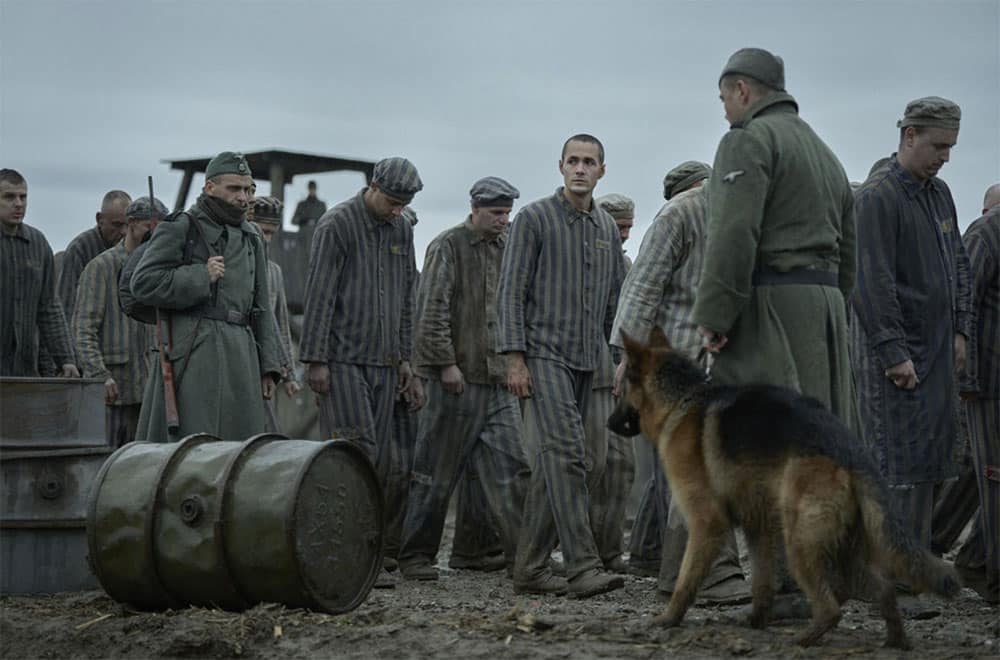
Episode 105 — Pictured: Jonah Hauer-King as Lali Sokolov in Auschwitz — (Photo by: Martin Mlaka/Sky UK)
Lali becomes one of the “lucky” ones, being selected to work as a tattooist, where he is given better living conditions, more food, and other special privileges thanks to his close proximity to high-ranking Nazi officials.
While his position gives him far more security and comfort (relative to the horrors most prisoners were forced to endure), he must also reconcile the guilt of working for the SS — selling his soul to the devil for survival and the chance to help others, like a beautiful young woman Gita Furman (Anna Próchniak) whom he meets and becomes instantly smitten with while tattooing her.
Though the help of a couple of unexpected allies — Lali’s supervisor, real-life Auschwitz guard Stefan Baretzki (Jonas Nay), and women’s camp guard Ivana (Mili Eshet) — Lali and Gita can share notes and steal brief moments of time together through their imprisonment as their relationship blossomed.
While Ivana cooperates thanks to good old-fashioned bribery, Baretzki’s motives are more complicated.
He is, undoubtedly, an irredeemable monster who exhibits the kind of savagery and utter disregard for human life you’d expect from a Nazi block leader. Yet, he develops a strange kinship with Lali, born out of loneliness and an inability to connect with others, and he often goes out of his way to help Lali.
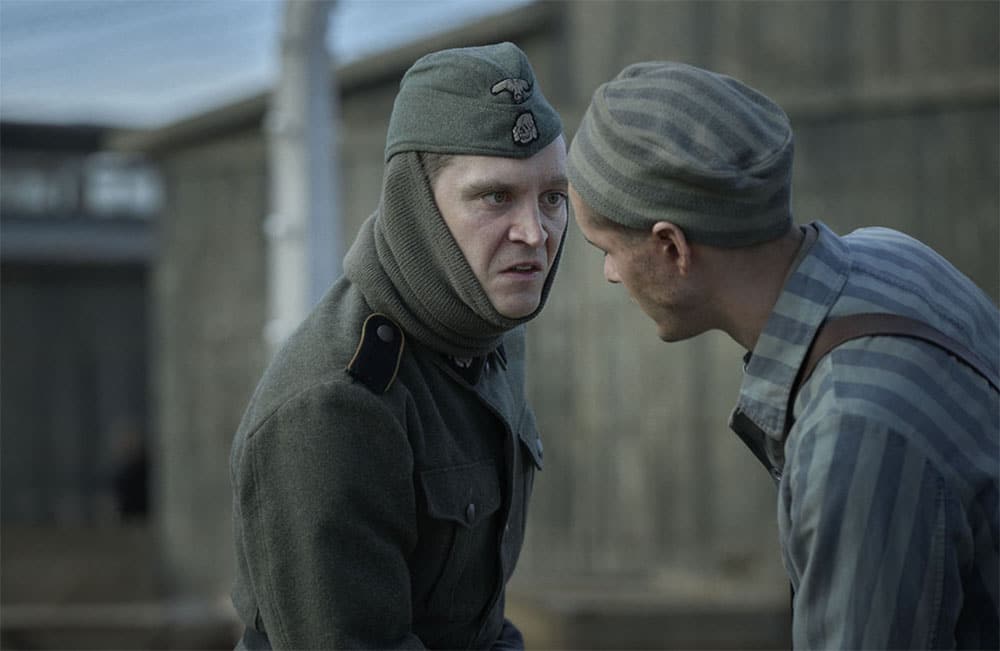
Episode 103 — Pictured: Jonas Nay as Nazi Officer Stefan Baretzki in Auschwitz — (Photo by: Martin Mlaka/Sky UK)
This troubling dichotomy will plague Lali until his dying day, following Baretzki’s arrest and prosecution for war crimes and his subsequent suicide.
Nay is extraordinary in the role, but he almost quit the series due to his trouble reconciling his character’s villainous actions with his belief that he did nothing wrong. He stated he needed months to recover from the intense filming experience.
As for Hauer-King and Próchniak, the heart and soul of the series, it’s difficult to heap enough praise on the two remarkable actors — both of whom deliver powerful, engrossing, and absolutely soul-shattering performances.
The story is told with exquisite pacing and pathos, moving back and forth gracefully between the past and present and mastering the delicate balance of hope and horror.
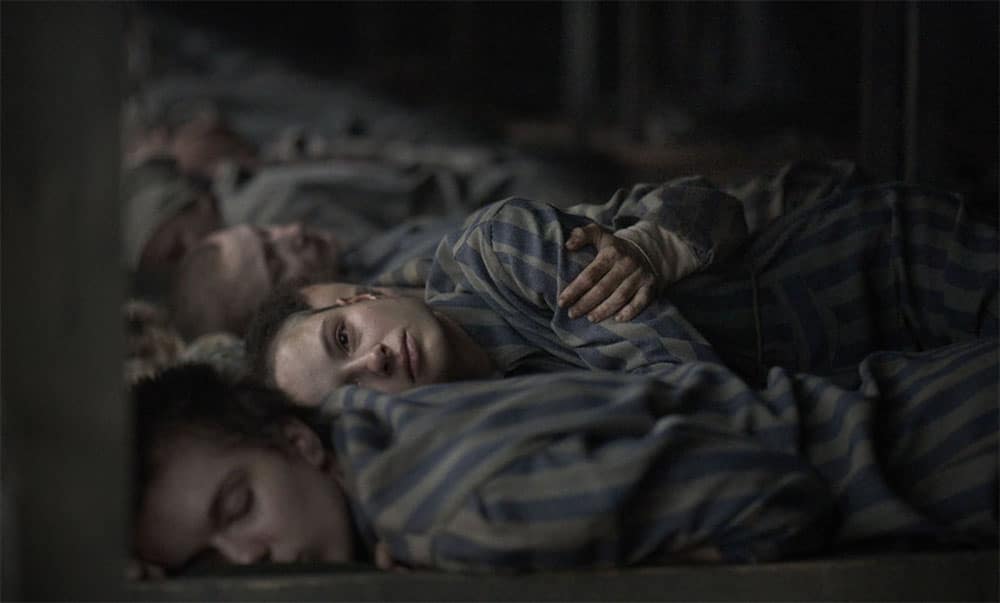
Episode 104 — Pictured: Anna Próchniak as Gita Furman in Auschwitz — (Photo by: Martin Mlaka/Sky UK)
It’s never exploitative and holds back just enough to keep this from being too stomach-turning and bleak to bear.
However, it doesn’t shy away from the awful truth of the situation and the devastating toll the Holocaust took, not just in the sheer magnitude of human loss but in the explosive depth of human suffering.
Ultimately, The Tattooist of Auschwitz is a personal human story of love and survival that’s as triumphant as it is nigh impossible. Yet, judiciously placed close-ups on the faces of other Auschwitz prisoners, representing precious lives stolen, ensure the backdrop of the worst event of mass death and torment ever to occur is always looming agonizingly large.
Confronted with these faces, we zero in on the pain and fear in their eyes, forced to understand the potential and hope for the future squashed, their humanity stripped away as if it meant nothing at all.
They are numbers to the Nazis, symbolized by the tattoos on their arms that Lali is forced to brand them with.
But they aren’t numbers; they are people. And before they were prisoners, they were husbands and wives, daughters and sons, mothers and fathers, brothers and sisters, grandparents and grandchildren. They had lives, loved ones, desires, dreams, careers, and passions.
What happened to them is so unspeakable and unthinkable that we want to push it out of our minds. We acknowledge its reality (sadly, some aren’t even willing or able to do that; one in five schoolchildren in the US reportedly thinks that the Holocaust is a myth) but try to shield ourselves from the worst of its most painful imaginings.
However, this attempt to distance ourselves from a harrowing reality is dangerous and allows treacherous soil to be fertilized from which current and future evil can grow.
There are devastating moments in The Tattooist of Auschwitz when an older Lali recounts a particular memory.
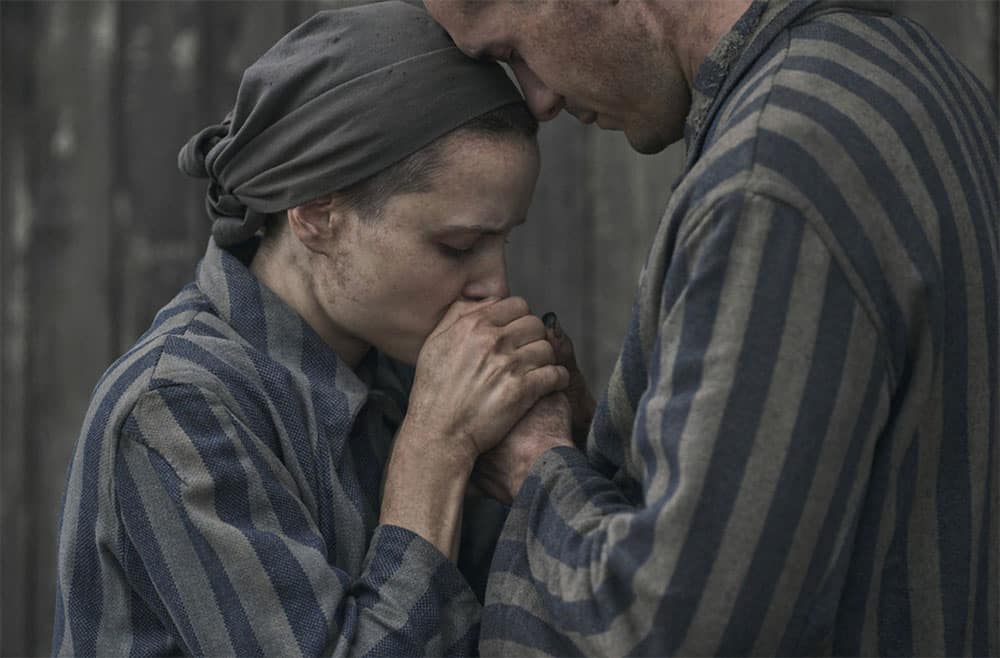
Episode 105 — Pictured: Anna Próchniak as Gita Furman in Auschwitz — (Photo by: Martin Mlaka/Sky UK)
You breathe a sigh of relief because it’s a bit hopeful; it’s even sweet.
The relief is mercilessly short-lived when Lali suddenly realizes his memory is wrong. We see that he’s suppressed some memories and recreates them in his mind to spare himself some of the worst pain.
Forcing himself to face truths that still haunt him sixty years later, Lali catches himself in the fantasy and retells moments of his story with terrible clarity, making us wish we could live with him in that fantasy where there is even a little less misery.
That’s not to say it’s all harrowing to watch. There are moments of great humanity that will stir your soul, especially given the conditions in which such compassion and kindness are able to endure.
The love story between Lali and Gita is gripping, and you’ll be desperately invested in seeing them get their happy ending — or as close to one as anyone could hope for after surviving such life-altering trauma.
Still, the pervasive feeling is a deep sadness and a lingering, piercing pain. And that’s exactly as it should be because the horror of the Holocaust should never be downplayed or forgotten.
In fact, Lali wanted his inspiring but heartbreaking story told so that, in his own words, “it never happens again.”
Barbara Streisand even recorded a new song, Love Will Survive, for the final scene of the Peacock and Sky drama, the singer’s first-ever recording for a TV series. She stated she wanted to be a part of the project, in the face of rising antisemitism around the world, as a “way to honor the six million souls who were lost less than 80 years ago.” However, she also wanted to acknowledge the core message of The Tattooist of Auschwitz, that “even in the darkest times, the power of love can triumph and endure.”
An exquisitely orchestrated and powerfully acted tale of tragedy and the triumph of the human spirit, The Tattooist of Auschwitz would be essential viewing, even if it weren’t so damn imperative.
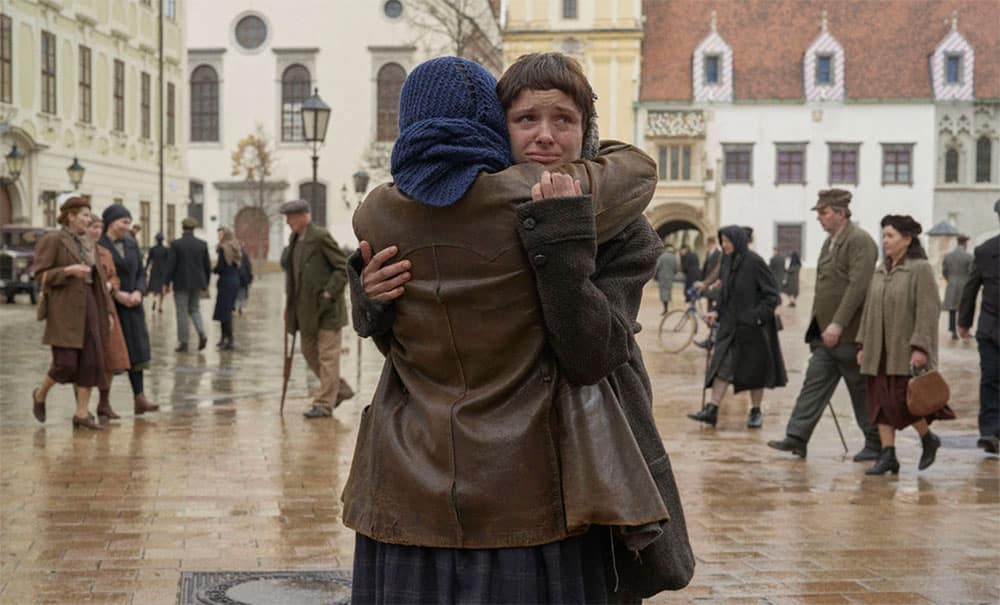
Episode 106 — Pictured: Anna Próchniak as Gita Furman in Auschwitz — (Photo by: Martin Mlaka/Sky UK)
How could the Holocaust have happened? How could human beings treat other beings with such heartlessness and viciousness? How could otherwise decent and well-educated Germans allow this to happen?
Events like this happen because we convince ourselves it could never happen — not “here”, not “now”. It happens through brainwashing, ideology, scare tactics, and the careful and calculated spread of misinformation. It happens because people remain silent rather than speaking up when it’s difficult or scary to do so.
You’re not paying attention if you think it can’t happen again. Genocides and massacres are all around us. And even in the land of the free, people fear persecution and severe backlash from speaking up against similar atrocities. The cost of speaking up is growing, even if the pressure to conform is mainly cultural — for now.
If history teaches us anything, we’re far too eager to forget our worst offenses and far too often doomed to repeat them… even when we can’t begin to comprehend how such real-life horrors could be imagined, much less perpetrated en masse.
It’s why The Tattooist of Auschwitz is such a difficult but essential watch and why I urge you to see it as soon as possible.
It’s sure to haunt you, but this is one haunting you should welcome mind, body, and soul.


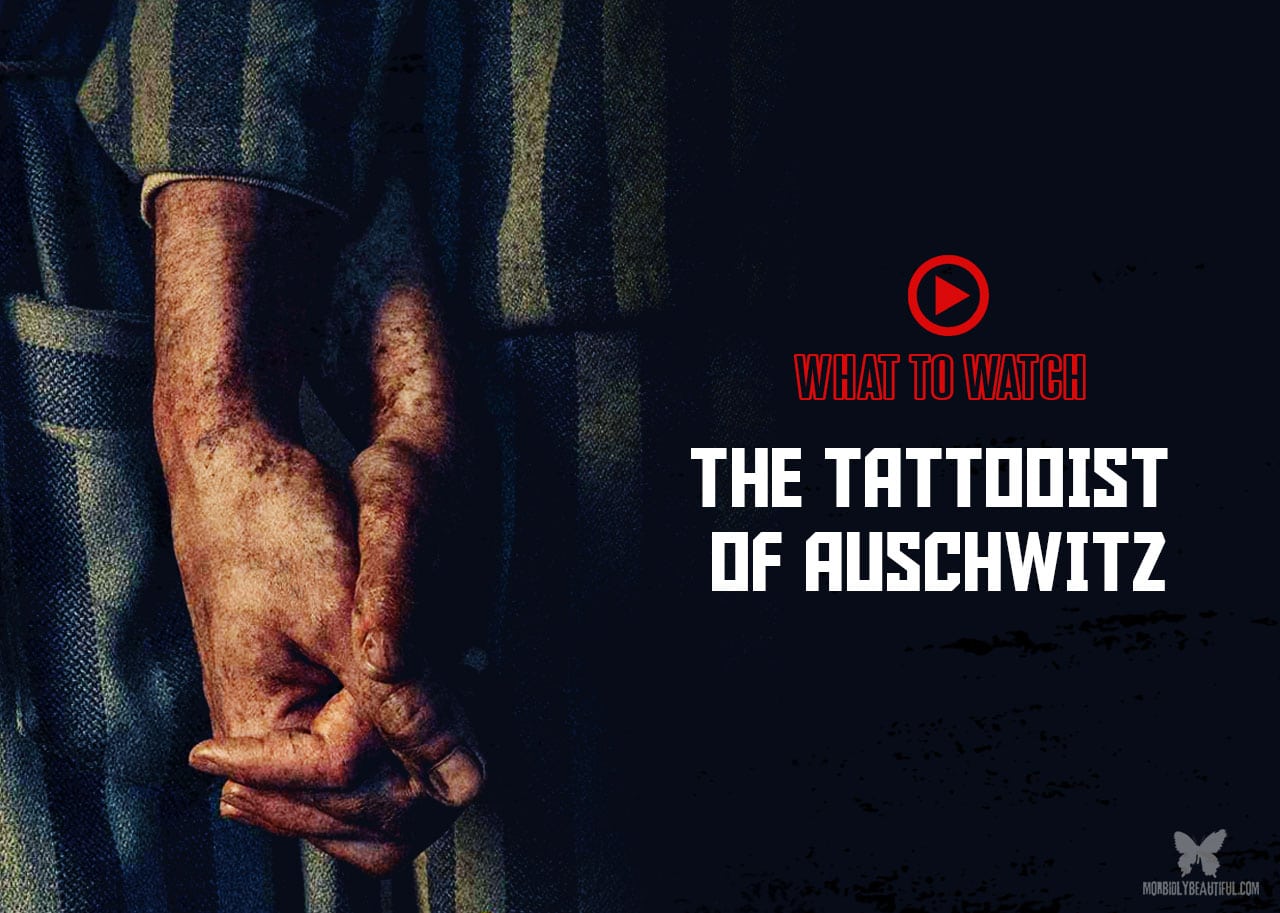

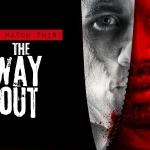










Follow Us!